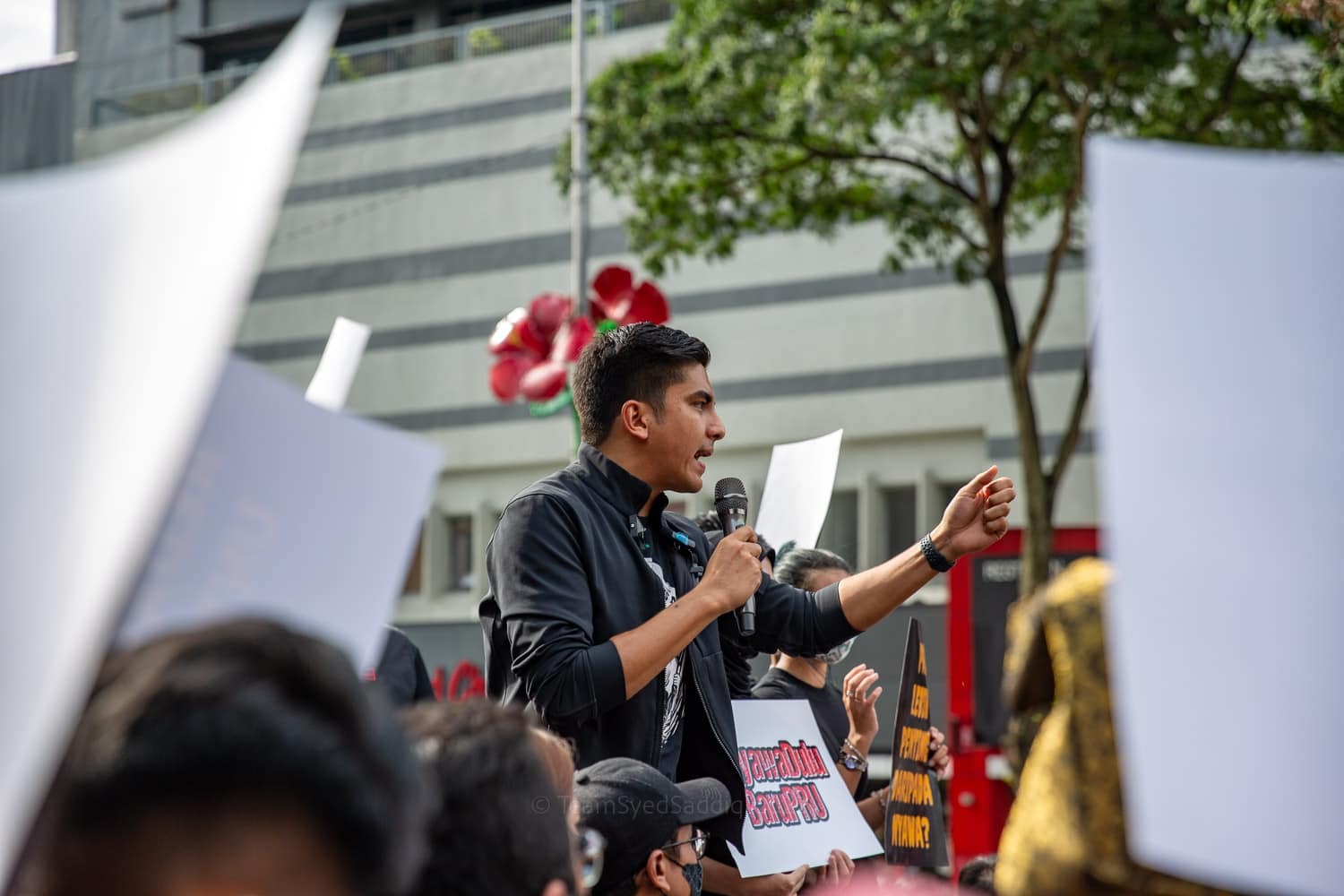KUALA LUMPUR, Feb 10 – Muda president Syed Saddiq Syed Abdul Rahman has called for standardised pay for contract doctors, as well as special allowances for all health care workers.
The Muar MP said the government should provide adequate funding to the health care system, not only for facilities needed to improve efficiency, but to also ensure the welfare of health care workers and professionals.
“Our health care workers work long hours; they are tired. They don’t see a career path but only want to work as long as they can, especially among those that are still stuck in the contract system.
“We spent a long time and a lot of money training those professionals, only for them to seek opportunities in neighbouring countries. The salary of nurses in Singapore is equivalent to the salary of our specialists here,” Syed Saddiq told CodeBlue when contacted.
“We must reduce the bureaucracy in the public sector. Give allocations for special allowances to all health care workers, including non-doctor staff such as nurses, medical assistants, radiographers, lab assistants, ambulance drivers, and health inspectors.
“Work to make their claim system much easier and faster. Another thing that we must do is standardise the pay for contract doctors, as they carry the same workload as the permanent staff.”
In CodeBlue’s survey of 1,652 health care workers in the public sector, about eight in 10 respondents (1,321 people) said they are underpaid. Out of the 1,321 health care workers who said they are underpaid, more than 55 per cent (735 people) were on contract, and 44 per cent (586 people) were permanent staff.
In the same subset, 69 per cent were medical officers (912 people), 11 per cent were house officers (149 people), eight per cent were specialists (102 people), five per cent were pharmacy officers (67 people), and three per cent were subspecialists (40 people).
Respondents who said they were underpaid also included 18 dental officers, 15 assistant medical officers, 9 nurses, as well as physiotherapists, optometrists, pharmacy assistants, and dental surgery assistants, among others.
Syed Saddiq described the current contract system as “messy” and in dire need of improvement. He said although the quality of the service provided by local health care workers is good, the employment system of the public health service currently faces inadequate funding and lacks career growth for health care professionals and workers.
“Our health care system has been in crisis for a long time, and should not be denied by any government,” said the government backbencher.
“As Muar MP, I’ve held a few meetings with the Sultanah Fatimah Specialist Hospital board of directors to listen to their plight. Although the hospital is not in my district, their services are available to residents there as well.
“One of the main issues that they brought up is that out of the 10 ambulances that they have, only five are usable, and these five ambulances are used to cover the entire district of Muar, which comprises three constituencies – Muar, Bakri, and Pagoh.
“I visited the hospital on the weekend, so it was quite empty. I saw how old the facilities were; the alley outside of the specialists’ offices is narrow, so when it is full of patients waiting for their turn to get consolidation or diagnosis, it gets too crowded,” said the former youth and sports minister.
“How is this not a crisis?”
CodeBlue previously reported that a contract medical officer (MO) working at a public hospital in Melaka highlighted the discrepancy in pay and perks between existing permanent MOs and those who were recently appointed into permanent positions. For the latter, their pay grade does not reflect their previous years of service when they were under contract.
“It starts from zero. Meaning, if you’ve been a contract MO, say, from 2018 and then you got your permanent post in 2022, you still get the same base pay, and [it] only increases four years after permanent employment. That’s eight years of service. Why? Do contract officers don’t do the same job? They don’t hold the same responsibilities? Why the discrimination between years of service? Work is work,” the MO wrote.
“I, personally, am actively seeking out employment out of the country. I do not want to keep working and be stuck in a system that doesn’t appreciate the work I do, that does not care for the welfare of officers. And of course, there’s the horrible pay for on-calls, I’m sure you’ve read about it.”
A government dentist from a public dental primary clinic in Penang complained about inadequate pay, which the dental officer described as “peanuts”.
“So for example, right now I’m spending on housing – RM1,200 for my rental alone, excluding the electricity and water.
“I’ll give you my net salary – it comes to about RM3,800 net salary. So with RM1,000 going to my rental, how much can I give my parents? Sometimes they need money, so I need to give them money,” the dentist told CodeBlue.
The government dentist complained that contract dental officers suffer grade demotions when they assume permanent positions in the service. Although their salaries remain the same, the lower pay grade leads to smaller annual increments.
CodeBlue also ran an open letter by a specialist doctor at an MOH hospital in Sabah who said that medical officers are paid RM220 for a 24-hour on-call on a weekend, equivalent to RM9 per hour – “an unthinkable amount for the amount of work put in”.
To compare, medical officers in Singapore are paid up to SG$480 for the same weekend on-call – 118 per cent higher than the Malaysian rate without currency conversion and 609 per cent higher if converted into the ringgit.
“A certain department of a university hospital in KL does not even pay doctors who work the passive on-call shift on weekends! Isn’t that wage theft and exploitation?” the specialist wrote.








